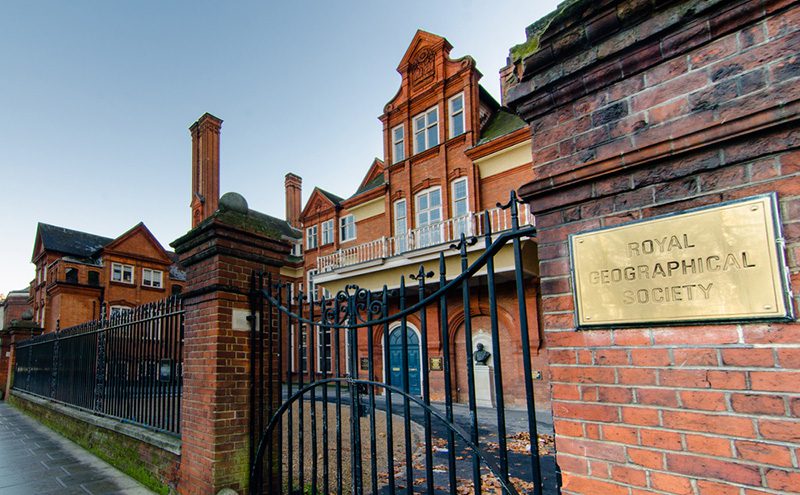
‘Building Greener, Smarter Communities’ will be the focus of the first ever Geovation Conference on Friday 16 February.
According to the organisers, this gathering of minds will explore how communities can move away from a “take, make and waste” economy, to one that makes best use of natural and man-made assets, and uses waste as a resource instead.
Designer Wayne Hemingway will be the keynote speaker at the event, which takes place at the Royal Geographical Society in London and will involve location data experts in addition to a wide range of sustainability leaders, start-ups, investors and designers. The organisers say the event will involve experts across public, private, third sector and academia.
Hemingway said: “I am eager to be part of this conversation influencing the building of smarter, greener cities and communities.
“Problems around health and wellbeing, sustainable living, local economies and our natural environments can be tackled positively by challenging the way things are done.
“Design is about improving the things that matter in life and if we can think globally, act locally and scale sustainably, using the power of geographical data, significant steps can be taken quickly.”
The conference marks the finale of the annual two-day Geovation Challenge, which concludes the day before.
Ten winning start-up teams will spend both days prior to the conference working with experts in different fields to refine and sharpen their start-up ideas as they pitch for a share of an £185,000 venture capital fund.
The 10 start-ups will present their final pitches on Friday afternoon at the conference, ahead of the award announcements at the end of the show.
Geovation co-creator Chris Parker said: “Building sustainable and resilient communities requires tackling old problems in new ways.
“To be successful, new solutions have to work across silos and across sectors and be done openly in a collaborative manner.
“Start-ups need to make use of rapidly developing technology and design-thinking, and since everything happens somewhere, geo-spatial data is an important part of that.”
Since 2009, Geovation has supported over 50 start-ups to develop, launch and scale their ventures, helping them to create over 90 new jobs and raise over £12.7 million in additional venture funding.
It has run 10 open challenges and now has its own location based data hub operating in Clerkenwell, London.
The Geovation Challenge builds on the success of 2016 winners Refill, the campaign to encourage the public to refill bottles of water for free on business premises, due to be rolled out nationwide later this spring.
Chris added: “Each year we try and improve on the challenge based on feedback from the year before, and this time we have added a major conference at the end of the event.
“By packing a room full of people who already pioneer or fund innovative green initiatives, it gives our start-ups the chance to test the viability of their ideas, make contacts and understand what it takes to launch or scale their ideas.
“It also gives the experts and judges a chance to explore the motivations and opportunities of each of these interesting projects.”
Ten Winning Start-Ups:
Be Plastic Clever
Local people (individuals, families, kids) working with local establishments (businesses, cafes, festivals and schools) to reduce their use of unnecessary single-use plastic items.
Community Friends Walks (Norfolk)
A walking group scheme, including dementia walks and companion walks, matching people with local knowledge about where to walk with those that have inactive lifestyles.
OASIS – Flowers for Life (Nottinghamshire)
Teaching and developing skills in growing flowers, growing flowering plants and seed collection and gathering at OASIS Community Gardens and across disadvantaged communities.
FoodSpot
Community platform that transforms city centres into hubs of sustainable and local food production.
Geo-locating Plastic Pollution (Croydon)
Combating the global plastic crisis by combining mobile technology, social community and adventure and distilling it down to a local level.
Portable Ecosystems
Transportable self-contained complete ecosystems which can transform a site instantly into a green space and just as easily move it elsewhere.
Neighbourhood + Eating = Neat
Bringing local communities together to source, swap and share home-grown produce. It uses geo-location data to identify other users in the neighbourhood to allow the FREE trade of produce.
OFFiGO (Blackpool)
Website and app so businesses can be discovered locally by sharing daily offers, events and services with consumers.
The Happy Crocodile
Service for schools and parents that combine ‘Walking School bus’, ‘Park and Stride’ and car pooling to reduce congestion and improve community cohesion.
WareHAUS
Pod type homes assembled inside empty industrial units warehouse, kitted out for those who cannot afford rent in towns. The units would be made from environmentally friendly materials and aimed at key workers such as nurses, police or teachers.







